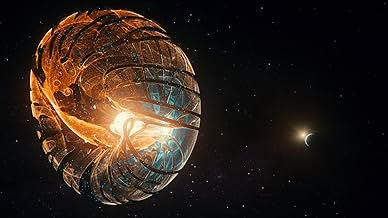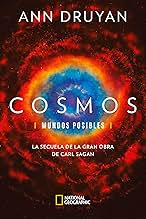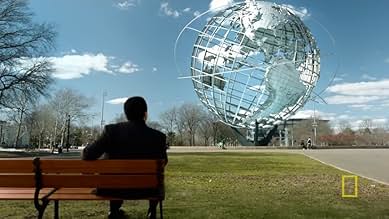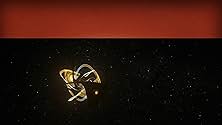Cosmos: Nouveaux mondes
Titre original : Cosmos: Possible Worlds
- Mini-série télévisée
- 2020
- Tous publics
- 45min
Neil deGrasse Tyson emmène le public dans une série de voyages spirituels d'exploration, révélant des royaumes jusque-là inexplorés.Neil deGrasse Tyson emmène le public dans une série de voyages spirituels d'exploration, révélant des royaumes jusque-là inexplorés.Neil deGrasse Tyson emmène le public dans une série de voyages spirituels d'exploration, révélant des royaumes jusque-là inexplorés.
- Récompensé par 2 Primetime Emmys
- 2 victoires et 2 nominations au total
Parcourir les épisodes
Avis à la une
Before this season began, the subtitle "possible worlds" gave me the impression that the 13 planned episodes would, one by one, show us a series of scientifically justifiable but altogether imaginary worlds (or more specifically: planets). This series is however, something completely different from that.
After having watched the first six episodes and reading some earlier reviews on the series, I get where the negative reactions stem from: wrongful expectations, not unlike my own.
What this series is doing, won't necessarily become apparant in either the first or the second episode. This may lead to the series coming off as somewhat childlike, but this has a reason, which is explained in the sixth episode (and is in hindsight deductible from the series predecessors). The goal of this series is to educate the broadest possible public, on what scientists today know about what possible worlds are ou there, outside of our own home planet.
It does so by first building a very solid foundation on how the scientific community and with it human society, evolved from our cave dwelling ancestors up until now. It explains what ideas, insights, experiences and so on have been key to getting us where we are now. With the season being halfway through at the moment of writing, it seems to me that my original expectations won't be completely off, but rather they are limited to the last few episodes.
So if you are expecting ground breaking new discoveries tickeling the imagination of a highly educated viewers public, you'll be in for a disappointment. This has however, never been the premise of these series. The goal was, and still is: bridging the gap between the scientific community and the greater general public.
And this is what the series does impressively well.
What this series is doing, won't necessarily become apparant in either the first or the second episode. This may lead to the series coming off as somewhat childlike, but this has a reason, which is explained in the sixth episode (and is in hindsight deductible from the series predecessors). The goal of this series is to educate the broadest possible public, on what scientists today know about what possible worlds are ou there, outside of our own home planet.
It does so by first building a very solid foundation on how the scientific community and with it human society, evolved from our cave dwelling ancestors up until now. It explains what ideas, insights, experiences and so on have been key to getting us where we are now. With the season being halfway through at the moment of writing, it seems to me that my original expectations won't be completely off, but rather they are limited to the last few episodes.
So if you are expecting ground breaking new discoveries tickeling the imagination of a highly educated viewers public, you'll be in for a disappointment. This has however, never been the premise of these series. The goal was, and still is: bridging the gap between the scientific community and the greater general public.
And this is what the series does impressively well.
Best scientific documentary that has been made ever.
Neil is like always perfect.
as a scientific show that simulations must be exact and adjust to reality; visuals, animations, sounds... are really wonderful.
you can not show the complicated theories like quantum to people with different levels of science, better than this.
thanks to lovely Ann Druyan
I was one of many disappointed when this season of Cosmos was delayed.But now Sagan's hopefulness and confidence about the future filtered through Tyson's knowledge and warm showmanship is the perfect countermeasure when the world is holding its breath. This season of Cosmos builds on what has gone before to offer fantastic visions of humanities possible future(s). Bravo and Thank you.
Imagine a show that takes you on a cosmic journey in your mind. A journey to the farthest edges of the known multiverse and your own backyard. This show will make you think and question everything you think you know about science, space, and your place in the grand design. So sit back and behold a wonderous adventure.
I'm so glad I got to watch this series in full. I particularly liked the stories of many scientists in the past, distant and recent, who have gone all but totally unsung.
Le saviez-vous
- AnecdotesThe limited series is a follow-up to the 2014 television series Cosmos: Une odyssée à travers l'univers (2014), which followed the original Cosmos (1980) series presented by Carl Sagan on PBS in 1980.
- ConnexionsFollows Cosmos (1980)
Meilleurs choix
Connectez-vous pour évaluer et suivre la liste de favoris afin de recevoir des recommandations personnalisées
- How many seasons does Cosmos: Possible Worlds have?Alimenté par Alexa
Détails
- Durée
- 45min
- Couleur
- Mixage
- Rapport de forme
- 16:9 HD
Contribuer à cette page
Suggérer une modification ou ajouter du contenu manquant





































